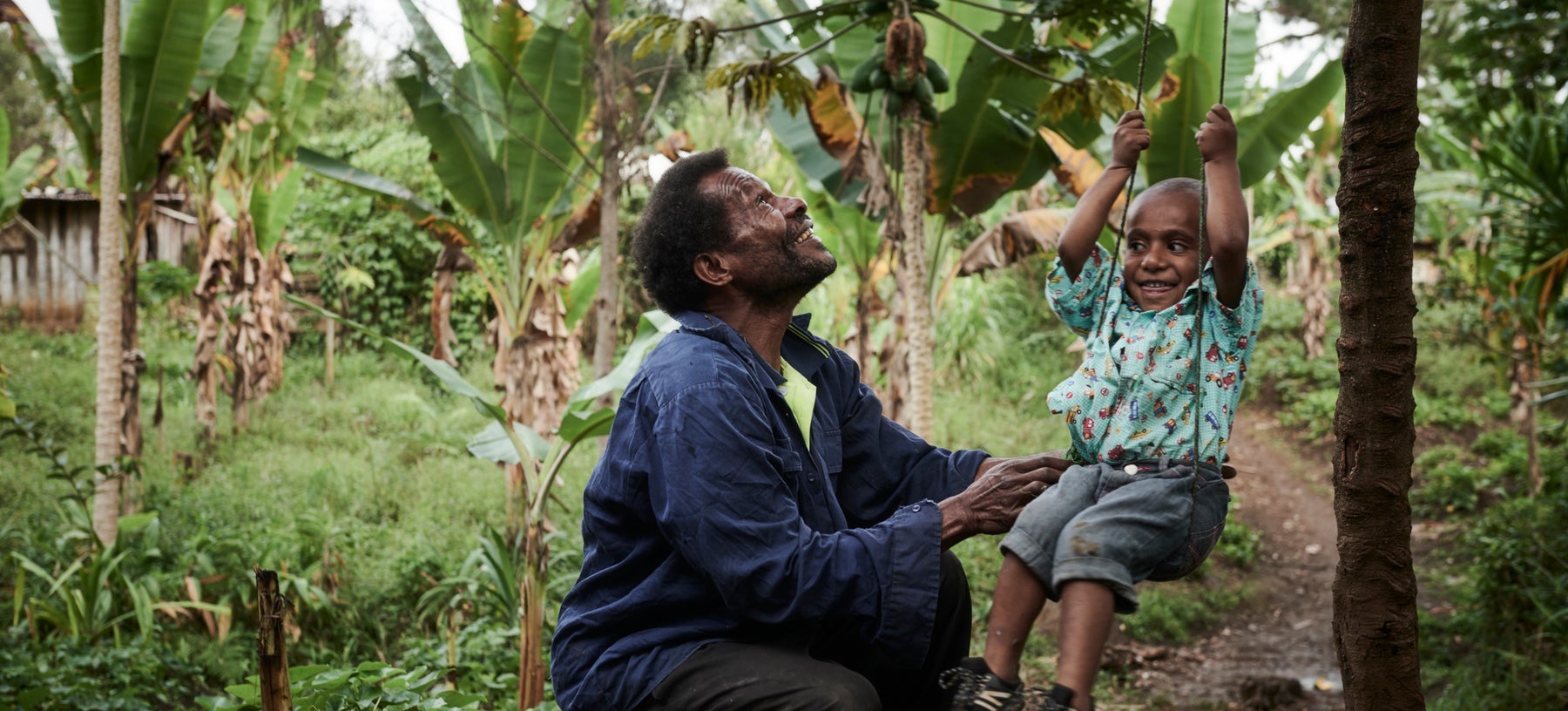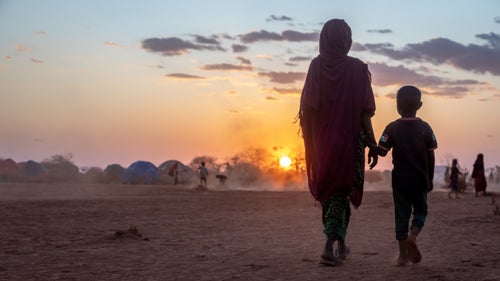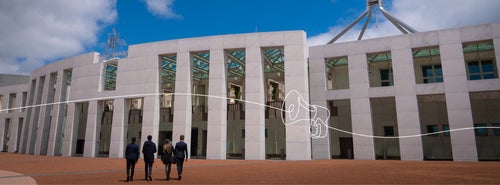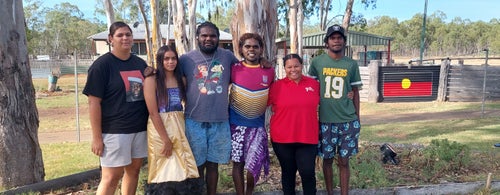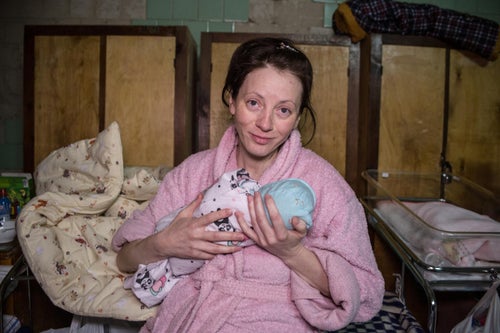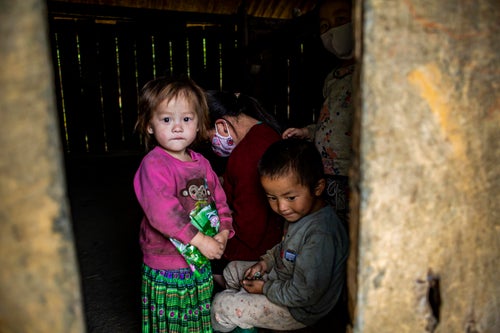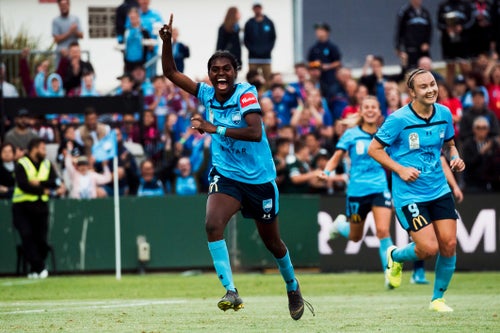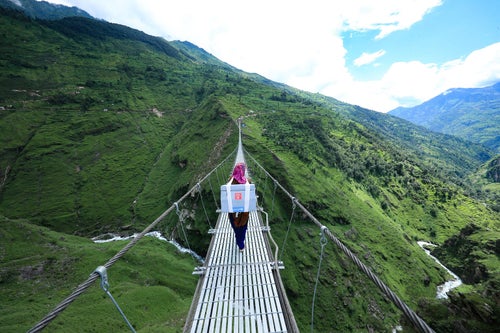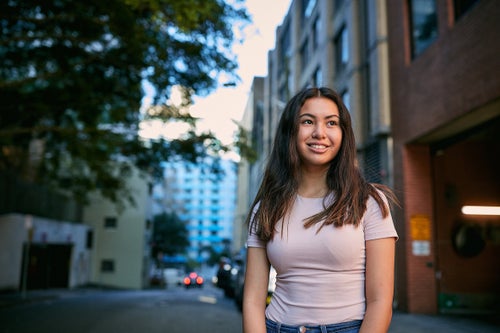In many parts of Papua New Guinea, fathers have an absent role in raising their children.
The responsibility lies predominantly with the mother and grandmother of the child. But the culture is starting to change. Here are four ways dads in PNG are challenging what 'fatherhood' looks like.
By saying no to violence
When Peter, 45, was young, his parents neglected him. Whenever he misbehaved, they would be violent and use physical and emotional abuse to punish him. It was the cultural norm in his village in Chimbu, Papua New Guinea.
So when he became a father himself, he treated his children the only way he knew - by hitting them and being aggressive towards them.
It was only after attending a UNICEF-initiated positive parenting program in his village in the remote mountains region that he realised what he was doing was wrong.
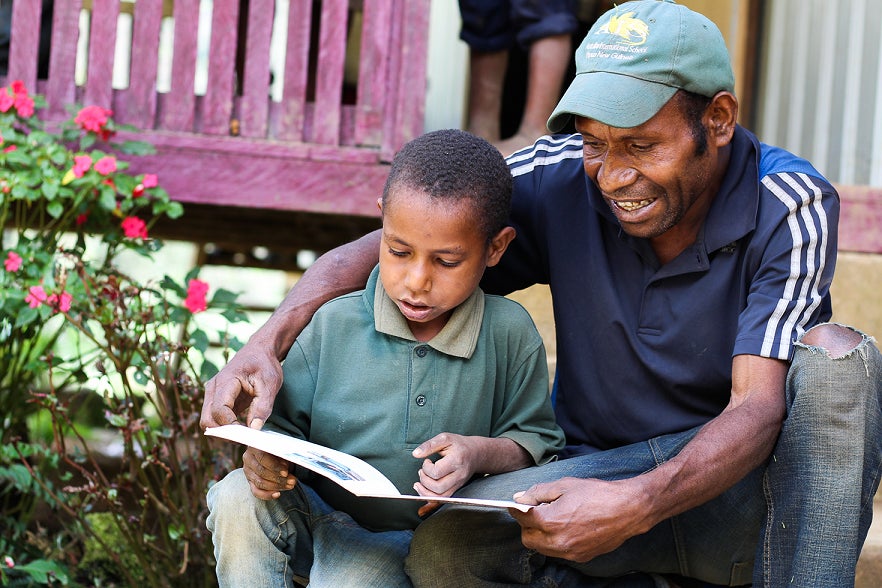
The program supports parents to use positive techniques to communicate with children, rather than using physical and verbal abuse which is common in parts of the country.
"I did what my parents used to do to me. I used to hit my children when they did not listen. I used to be violent towards them."
“During my time, there were no instructions like this,” Peter says.
“But now this program means there are directions and some instructions on how parents can do better for the children.”
By playing with their children
Strangers used to stare at Paul when he would play outside with his seven children. In parts of PNG, it is not common for the dads to care for and show affection towards their children.
So Paul was not surprised when he was the only male to attend a group training session about positive parenting.
“It was good to be there in the group, even though I was the only male,” Paul says.
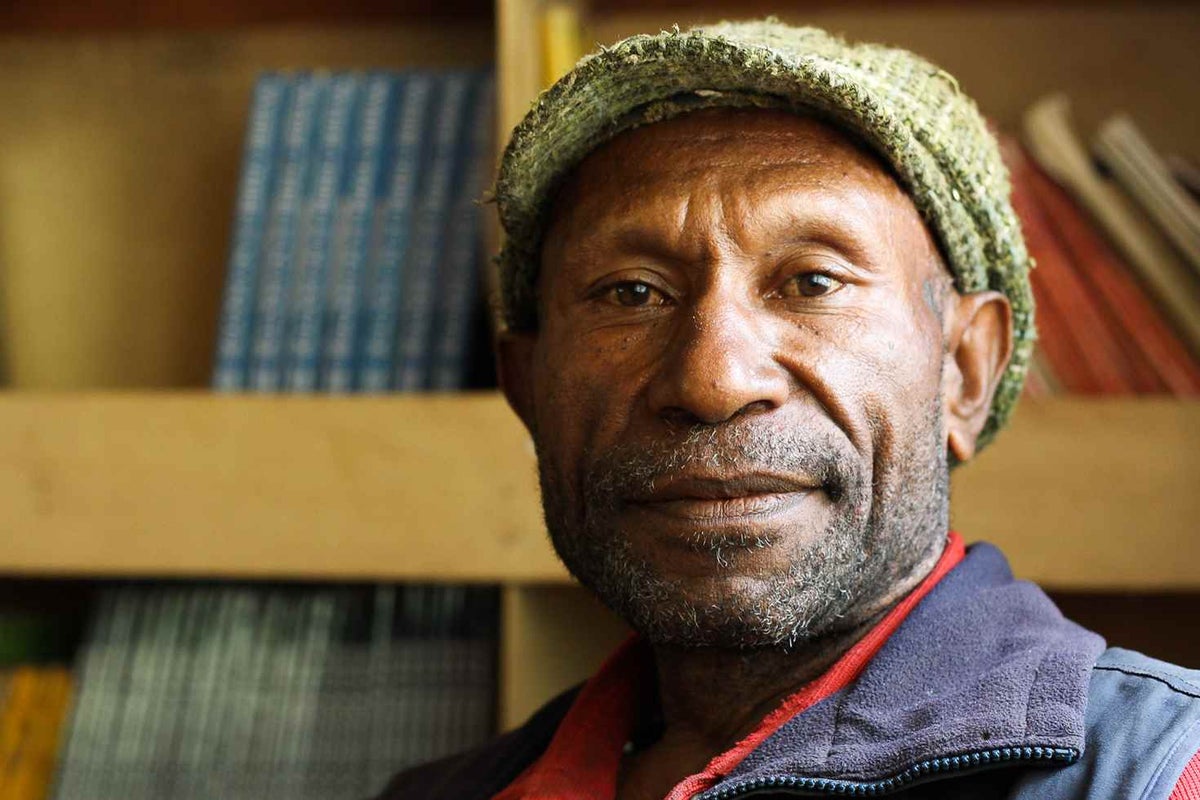
“I thought the most important thing was that this new approach would help kids develop a positive mind. That was really important to me.”
"I used to play with my children before... but now I have more strength to spend my time playing with my kids."
By turning the focus to learning
Peter’s eldest son Gabriel was born with a disability. He was worried that his son would not do well in school and would have problems in the future.
Peter started spending more time with Gabriel, by playing and reading to him, and noticed a huge difference in his son’s behaviour.
"After I tried to teach him how to behave and go to school he did great – he came third in his class,” Peter, a community leader in the remote village of Chimbu says.
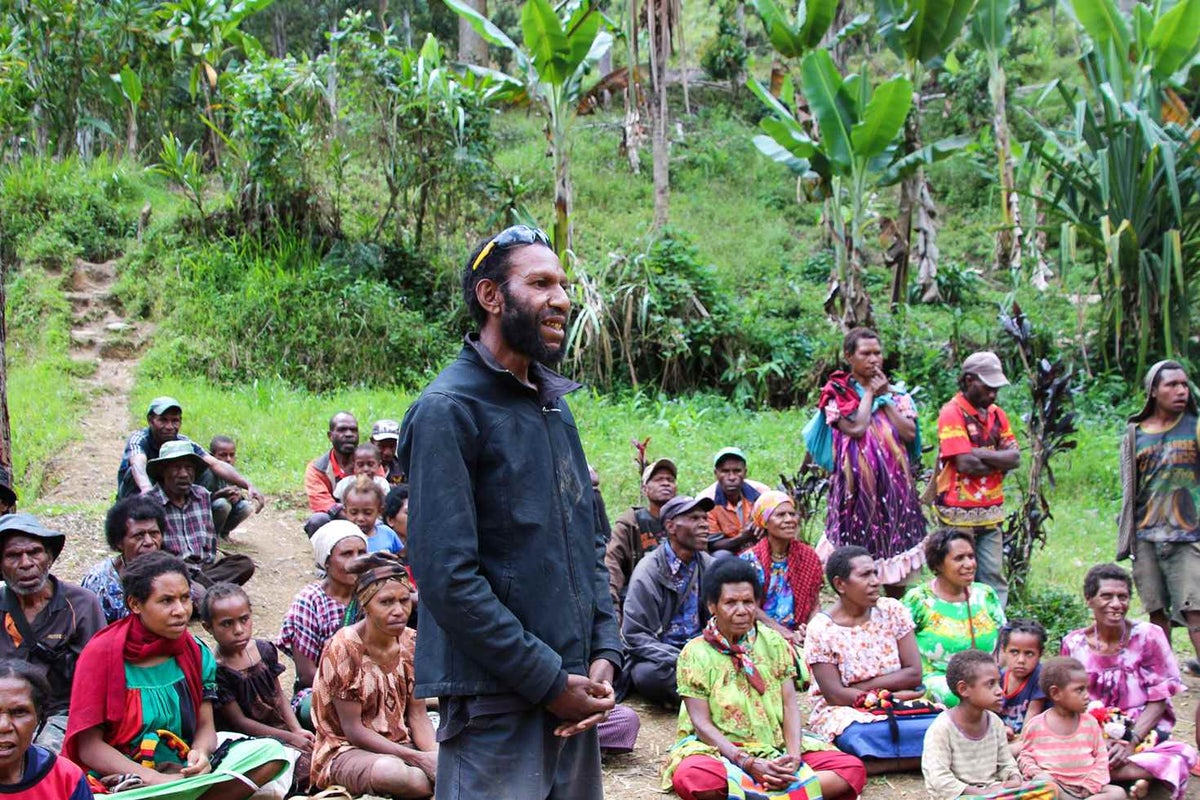
“He did very well, and I was so impressed with him. At home he is quiet, but he does take initiative with activities now, and that really impresses me and my wife.
Peter was unable to attend the first roll-out of the program. But his wife went to the classes and has passed on some of the techniques she learnt.
“I never knew this existed. But my experience with my kids is great. They are changing.”
He can’t wait for the next round of classes to begin so that he can be an even better father to his children.
"I was so impressed with him. At home he is quiet, but he does take initiative with activities now, and that really impresses me and my wife."
By being a proud dad
Joe, 56, has six children and four grandchildren. While most of his children are now older, he joined the program with his wife so that he could help his grandchildren have the best possible lives they can.
“Before with my children, when they misbehaved I would belt them, I would shout at them, smack them, pull their ears, and hit them,” Joe says, adding he regrets having hit his children and grandchildren.
“But I realised that what I used to do before was not good.”
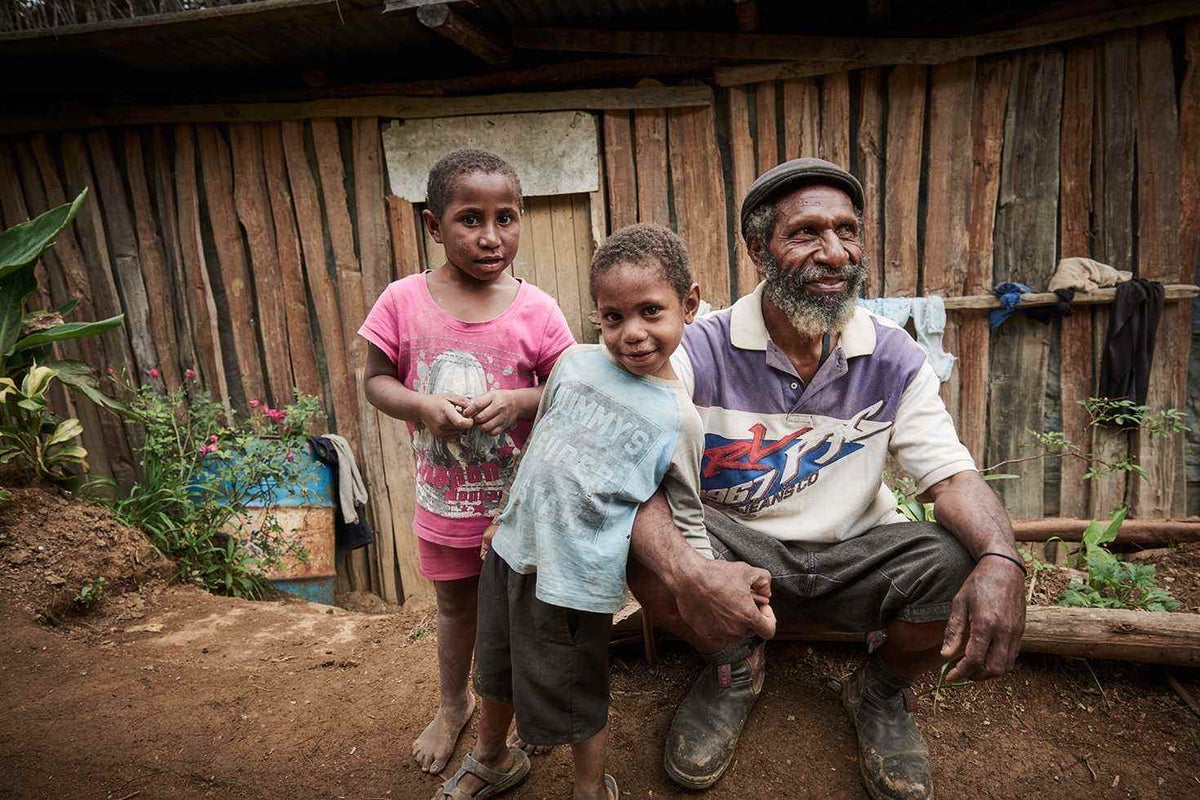
"Before with my children, when they misbehaved I would belt them, I would shout at them, smack them, pull their ears, and hit them."
Joe says it is good for both parents to do the training so that they can check in on one another to ensure they don’t go back to their old ways.
“Because my wife also attended the training, we are both making sure that our approaches and parenting are the same as what we learnt,” he says.
“I feel that I can never do what I did before again. I would feel guilty."
Children have the right to a home environment that is safe and secure, and free from violence. Violence in the home shatters a child’s basic right to feel safe and secure in the world. Violence has no place in a child’s life.
In Papua New Guinea and other countries in our region, UNICEF is supporting parents and governments to create safe communities for children. We’re providing emergency medical care and training community leaders to prevent and respond to violence.
Related articles
Stay up-to-date on UNICEF's work in Australia and around the world



